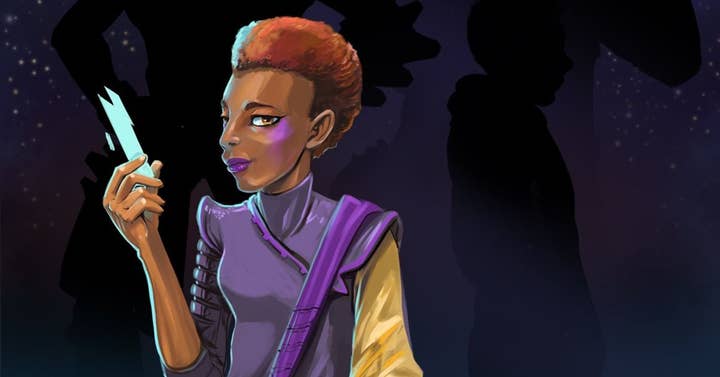"Letting commercial decisions dictate creativity is the biggest detriment"
Poorly Timed Games' founder Chris Wright shuns censorship and shares his hopes for diversity in the games industry
Poorly Timed Games is just under two years old, but it has already achieved a level of diversity that decades-old developers and publishers seemingly struggle to match.
Being an indie studio, it's a smaller team -- 22 at its high point -- but founder Chris Wright tells us over 60% of team members are "fully across the rainbow of LGBTQIA," while over 20% are non-binary. And he suggests this is more attainable that some of the larger publishers might think.
"One of the common points you hear from companies is 'We just want to hire the best people,' and obviously we do too," he says. "But our company is over 60% non-cis het[erosexual] white men. To attain that level of diversity and not have the level of resources of an Activision or a Ubisoft suggests it's entirely possible."
He adds that both these publishers, and many more in the industry, have access to millions if not billions of dollars. Poorly Timed Games is a self-funded startup, with Wright adding: "I can assure you I don't have anywhere close to billions... If we can do it, you can certainly do it."
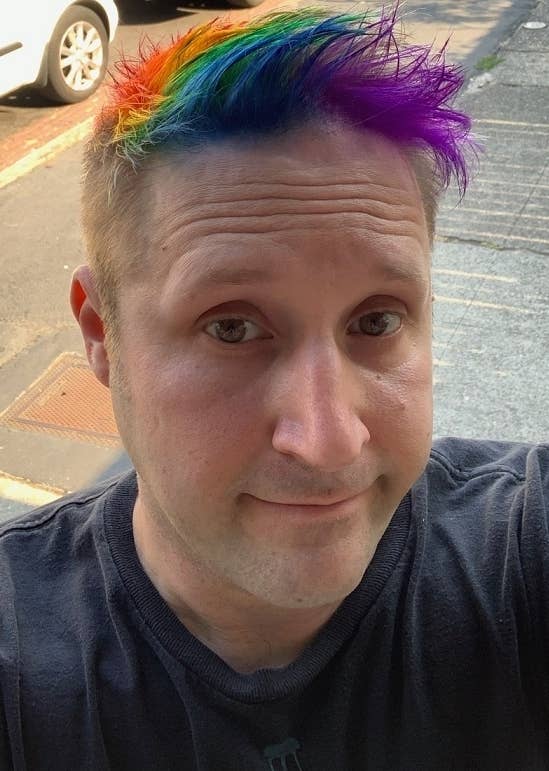
Wright has been working in the industry since 2007, primarily on testing teams. For example, his last position before branching out on his own was on the Build Verification Test team at Bungie -- the group who check a build is playable before passing it to the teams that need it.
"People are like, 'Oh cool, you worked on StarCraft 2, Diablo 3 and Destiny 2. What did you do that I can see?' Literally nothing," he jokes.
He started Poorly Timed Games out of a desire to "scratch the design itch" and truly create something. His success in attracting a diverse team is impressive, especially in light of the recent conversation around other startups by ex-AAA devs, but he emphasises that it has been no easy task.
"We're not known, so we've been very fortunate that the team started out pretty diverse," Wright says. "Some of our hires certainly did come from word of mouth. My being openly queer helps. It doesn't guarantee [to people] that I care about [diversity], but because I'm out about it, I think some people assumed 'Okay, well, he will probably care about that sort of thing.'
"A lot of my female friends also ask what our ratio of women to men is, and I'll tell you, if you don't have an answer to that, it's generally not a good sign to them."
"I can assure you I don't have anywhere close to billions... If we can do it, you can certainly do it."
The Poorly Timed moniker came from a former Bungie colleague, who suggested Wright's struggle to find a company name that hadn't already been taken suggested this was perhaps not the time to be starting a studio. But the timing did prove to be interesting: less than six months after the company was founded, the pandemic hit and Wright faced the challenge of building a business in a world under lockdown.
These challenges are explored in a PC Gamer article that opened with Wright's comments and experience, something that really raised the profile of the new studio.
"Overnight, we had a bunch of people contacting us, publishers asking to see a demo -- which was really flattering, because I didn't even have a [game design document] at that point," says Wright. "We figured it's pretty rare for a completely unknown indie to get some attention, let's take our shot because we won't get another one."
In a year where reports and exposés into major publishers and the many issues caused by their male-dominated workplaces, Wright believes Poorly Timed Games is one of the studios that proves that diversity is "not just a matter of hiring [people], it's a matter of listening to them and promoting them."
"Those of us who have been talking about it are tired of talking about Diversity 101," he says. "I think we're past ['Here's why it's important'], I think we should be talking more about how you do better at promoting and listening to your diverse hires."
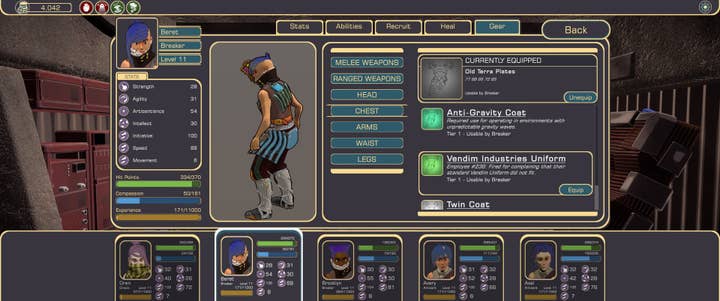
Wright adds that his team is "by no means" as diverse as he would like. It's a constant area for improvement, but it does at least make the company more appealing to a broader pool of applicants.
"A lot of minorities are aware of which studios are better or worse, there's a reputational thing," he says. "So those really large studios that don't have a great reputation, they do have their work cut out for them.
"If you're a bunch of white guys and one woman, some people might be cautious about [being] the first person of [their identity] because they don't know what to expect. To studios like that, I would say reach out to friends and co-workers who are minorities and ask them how to improve. If you haven't been paying attention and you grow to 20, 50, 100, you are going to have a harder sell in a lot of ways."
"If you're a bunch of white guys and one woman, some people might be cautious about [being] the first person of [their identity] because they don't know what to expect"
Wright is keen to emphasise that diversity issues in the industry goes beyond the people making the games -- it is equally applicable to the games themselves.
"I really want to see more representation in characters," he says. "The games industry is improving on that but sometimes it's like 'Look, we've got a queer character NPC. We've done it, we've achieved diversity.' I feel like we can ask for a little bit more than that.
"There's always a million justification for making the next game with 99% white cis het men, and there's nothing wrong with games like that. But if you look at things like Black Panther and Captain Marvel, [that] did absolutely amazing numbers, a lot of people got it. But then you had other people who were like 'I never knew that would do that well' -- but why not? It was a really well done piece of entertainment that people could see themselves in. All these pictures on social media of Black kids dressing up as a superhero... who doesn't want the fantasy of seeing themselves in these roles?"
Poorly Timed Games hopes to advance this cause with its debut title, Grim Tranquillity. This strategy game takes the combat of X-Com or Final Fantasy Tactics and combines it with roguelike elements, such as random buffs and debuffs and randomly generated squad characters who can die permanently.
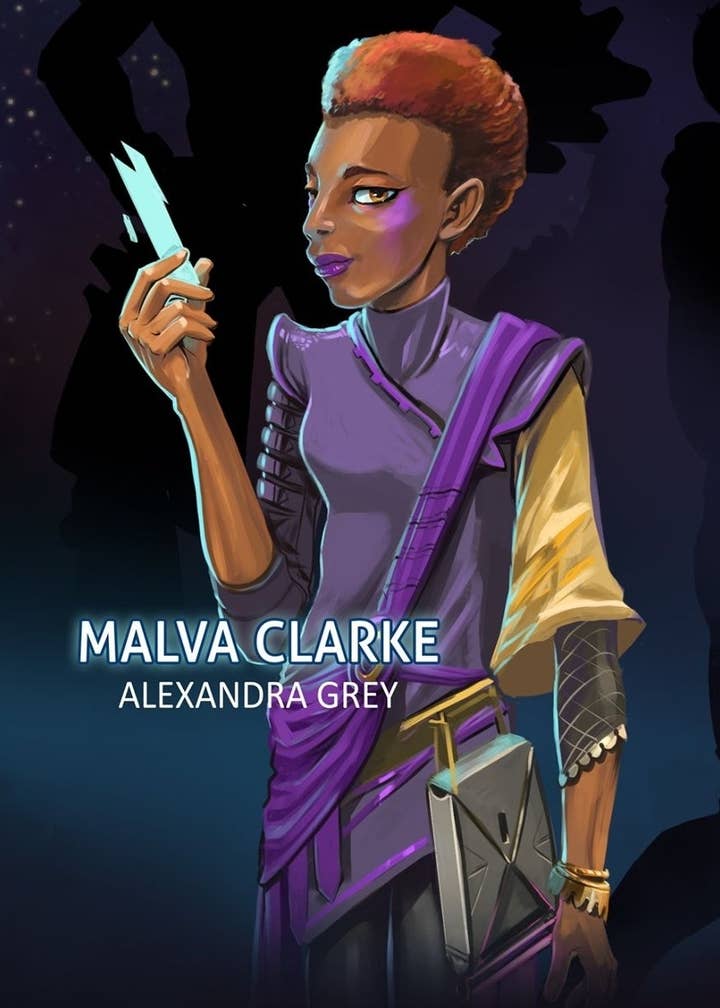
The game is set in a future where the anti-climate change proposals of the Green New Deal never happened and the Earth burned. Humanity, on the brink of extinction, discovered mysterious plans for a starship that could save enough people to colonise other worlds. Some entered cryogenic sleep while the rest operated the ship. Players take on the role of mission commander Malva Clarke, who was among those in stasis.
Clarke is a Black transgender woman -- a character that emerged organically from the diversity of the team.
The other main character is a woman, and heroes available for players' squads have a broad range of gender identities and sexualities. Players will be even able to build new characters and none of the pronouns, models or voices are locked to one another.
"There's white heterosexual guys in there too but it's more like how Earth actually is," says Wright. "It's people. And the focus is not on their sexuality. It's like how I think the world should be, it's 'Oh, you're gay? Cool. Anyway, we have this alien coming towards us. How do we stop it?' I'm just hopeful that more games start to show real diversity and don't do the thing where they either exclude us or include us but only in a token way."
Learning of Grim Tranquillity's transgender lead brings to mind Dontnod's Tell Me Why, the first major game to star a trans protagonist. But while that title's story tied in with that character's experience, it's not necessarily the case here.
Grim Tranquillity explores other themes that are important to the studio, such as climate change and the overzealous capitalism that is accelerating it.
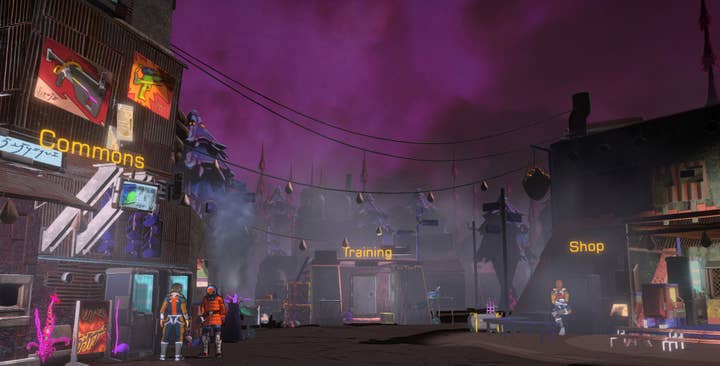
"Our thinking around the diversity of people is the Earth is dying, so there's frankly no place to have conversations or arguments about this," Wright explains. "I know that may not be how everyone would necessarily want it to be depicted but we reached out to a number of POC who are queer and transgender to read it, to give us feedback on how things are presented. We do have a flashback scene to before Malva's transition, and we got a lot of great feedback from our trans readers on how to do that authentically. We did not get it right the first time, so that guided us.
"I'm just hopeful that more games start to show real diversity and don't either exclude us or include us but only in a token way"
"Our game is not about being a Black transgender woman, but a lot of the story is from her perspective. That's a different [approach] to previous games, but it still needs to be done authentically."
That authenticity also extends to the voice cast. Malva Clarke is portrayed by Alexandra Gray, the Black trans actress best known for her roles in TV drama series such as Empire and Transparent. Poorly Timed Games even recast a non-binary character when they realised they had assigned a voice actor who was not non-binary; instead, they moved the actor to a different role and found a new non-binary actor to take on the part.
"The more we cast authentically, the better it is," Wright says. "If you have someone who understands the experience and they're looking at lines that don't feel right, they can give you that feedback. I personally cannot speak to the transgender experience. Having this diverse team is about acknowledging the gaps in your knowledge and reaching out to experts on it to ensure the experience is as authentic as possible."
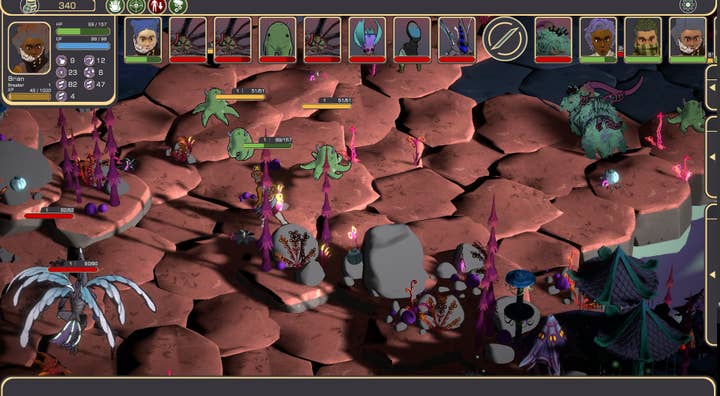
Grim Tranquillity, which made its debut at last week's PAX West, is currently in pre-alpha and aiming for a 2022 release. Wright doesn't expect it to generate billions of dollars, but he does hope it will demonstrate that in-game diversity is not only possible but appealing to players.
He posits that it's often down to indies to set the pace for change in the industry, with those changes later picked up by larger publishers when they deem them to be commercially viable.
At the very least, he hopes Grim Tranquillity helps keep the industry on a path away from the default male protagonist. He cites the discourse around The Last of Us back in 2012, when developer Naughty Dog had to defend the decision to put a woman front and centre on the cover.
"We're not living in a world where 99% of us are men, so why would that be a controversy?" he says. "To me, letting the commercial decisions dictate creativity is the biggest detriment... I know personally of games where if they have queer characters, that can be a problem in Russia [for example]. Our answer to that is simple: this is our game. If Russia doesn't want it, then that's their decision but we are not going to censor our game for a country that isn't accepting of this. That's their loss.
"There's been too much focus on profit alone and not what games are, which is storytelling. We need less censorship because of 'oh, it might shrink our market'. So what? If that's the story you want to tell, isn't that the point? People like Bobby Kotick might not agree with me, but this is the story we want to tell and if it means we take a hit to our bottom line because of that, so be it.
“A lot of risks get taken by the indies, and then the big companies will copy it. If we're talking about diversity, if companies like ours put out diverse games and do reasonably well, and that means an EA or a Blizzard or a Ubisoft says 'We're going to do a truly diverse game' and that takes off... Frankly, I could not be happier."
